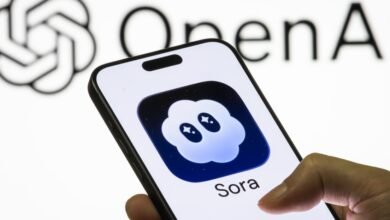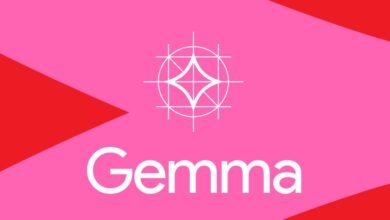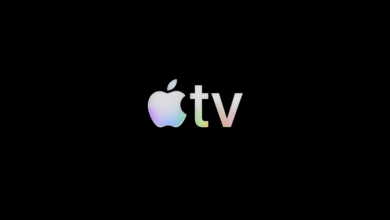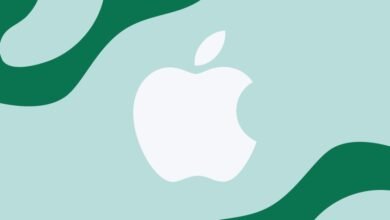Nothing’s ‘AI OS’ Isn’t First or an OS, But It’s Fascinating
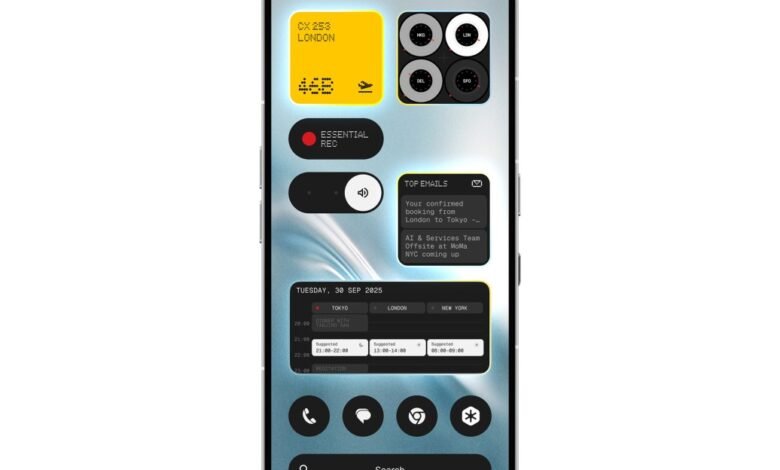
▼ Summary
– Nothing’s Playground is an AI-powered app store built on Android, not a new operating system, allowing users to create and share custom apps from written prompts.
– The company’s “Essential” product line includes AI tools like a search function and Essential Space, aiming to make devices adapt to users rather than the opposite.
– Playground currently supports widget creation via a web platform and is exclusive to newer Nothing phones, with plans to enable full-screen apps and on-device creation through voice commands.
– Nothing envisions a potential creator economy where users can remix apps in an open-source style, though monetization is not yet a focus until the platform scales.
– Despite ambitions for proactive AI features, Nothing remains committed to Android and acknowledges that traditional apps will continue to be essential for smartphones.
Nothing’s recent announcement of an “AI-native operating system” has generated significant buzz, though the reality is more nuanced than the marketing suggests. The company’s new Playground platform and Essential Apps represent a compelling vision for personalized smartphone experiences, but they are built firmly on top of Android rather than constituting a new operating system. This initiative provides a fascinating look at a future where our devices might adapt more intuitively to our individual needs and routines.
The core of this announcement is the launch of the Essential product line, which Nothing describes as its collection of AI-driven tools. Founder Carl Pei emphasizes the goal of creating technology that adapts to people, reversing the current dynamic where users must conform to their devices. While presented as a new unveiling, several Essential products, such as an AI search tool and the Essential Space organizer, are already available to users.
The truly novel component is Playground, functioning as Nothing’s curated app store. Its content comes from Essential Apps, a generative AI tool that allows users to build simple applications using only written instructions. This empowers people to create custom software for specific personal tasks. Imagine designing a mood tracker that automatically syncs with your music library, an application that converts receipt photos into expense reports, or a style advisor that suggests outfits based on your calendar and existing wardrobe.
This represents the initial phase of a much broader ecosystem that Carl Pei envisions, which helps explain the “first step” characterization. Currently, the system only supports widget creation, which naturally restricts functionality. App development happens on a web platform through text prompts, after which creators can install their creations on their own devices or share them via Playground for others. The feature is available only on newer Nothing phone models, as the Phone 1 no longer receives major updates and cannot support these new applications.
Pei indicates that the app creation process will become progressively more seamless, eventually moving directly onto smartphones and potentially incorporating voice commands. He confirms that widgets are merely the starting point, with plans to develop full-screen applications that rival the capability of conventional apps available today.
This platform could potentially seed an entirely new creator economy if it gains sufficient traction. Playground enables users to modify and build upon applications others have created, fostering a collaborative environment reminiscent of open-source communities. Despite frequently discussing the walled gardens maintained by Apple and Google, Pei states that monetization isn’t currently a priority. He believes the platform must achieve critical mass before implementing any business model, suggesting YouTube’s creator ecosystem as a potential future blueprint.
Looking further ahead, Pei envisions phones becoming genuinely proactive, rearranging app placements or suggesting new applications based on usage patterns. Even at this advanced stage, however, this would function as an intelligent interface rather than a true operating system. Pei acknowledges this distinction, noting that the term “OS” can be interpreted in various ways.
Nothing has no plans to replace the Android foundation that currently supports its products. “We’re not touching the lower level code,” Pei states, affirming that “Android is a great platform to build upon” with its established developer community. Users will continue downloading mainstream applications like Instagram and TikTok when setting up their devices.
While this represents an innovative feature with exciting economic potential, Nothing remains far from operating independently in the mobile ecosystem. Unlike other hyped AI devices that promise to replace smartphones, Pei isn’t advocating for a post-app world. When considering when he might be ready to abandon traditional applications, his response is telling: “You know, not anytime soon.”
(Source: The Verge)
